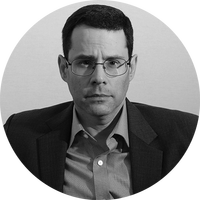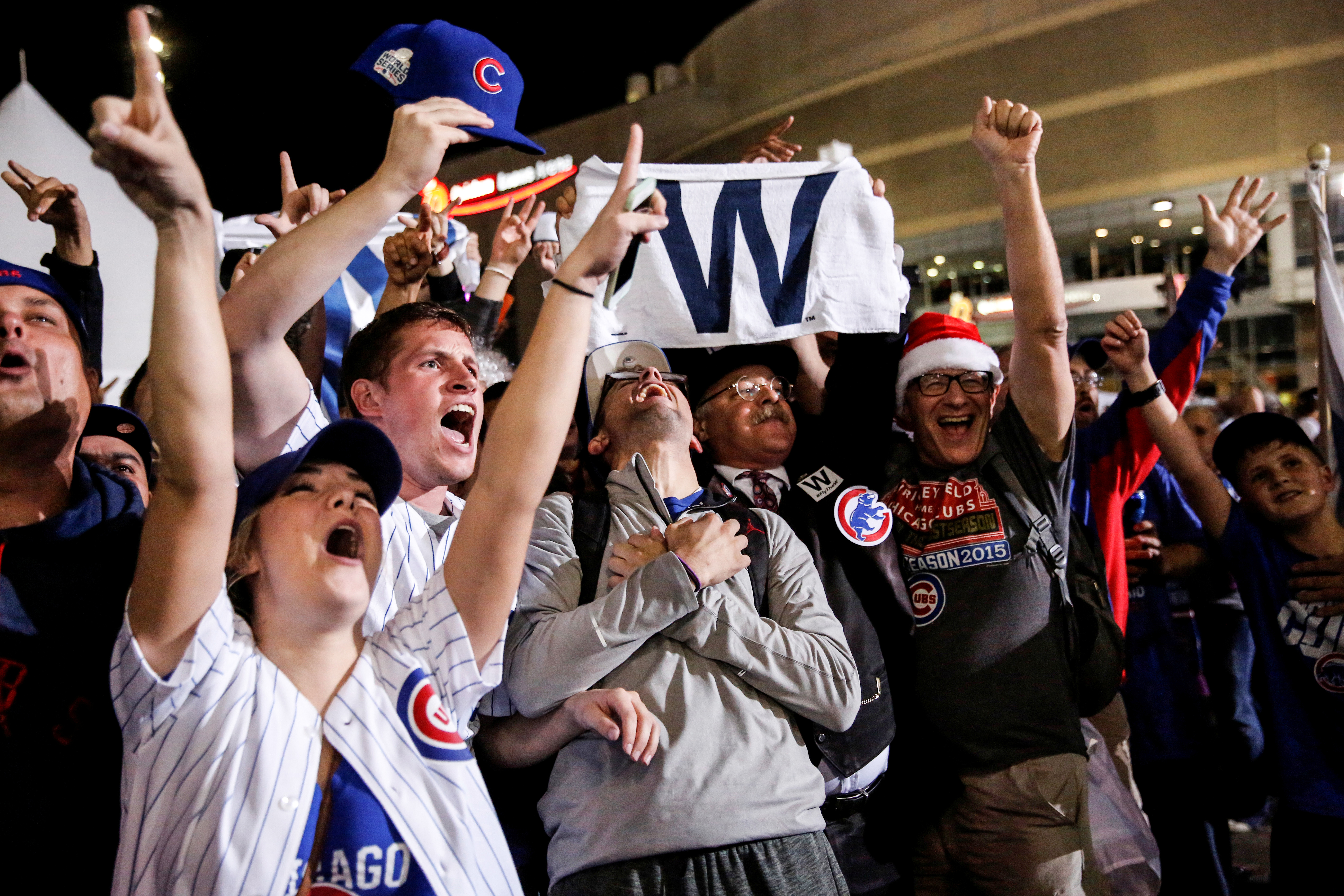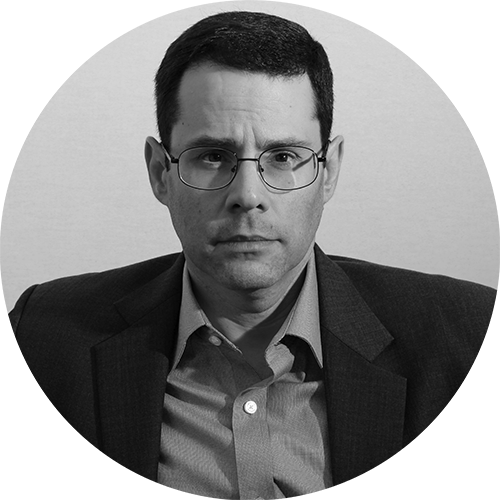After 108 years in the desert, the Chicago Cubs finally came home
My family has rooted for the Cubs for five generations, since my great-grandfather arrived in Chicago in 1910. In all that time, we were never champions. Until now.


A free daily email with the biggest news stories of the day – and the best features from TheWeek.com
You are now subscribed
Your newsletter sign-up was successful
The late commissioner of Major League Baseball, Bart Giamatti, a scholar of Renaissance English and former president of Yale University, wrote that baseball was a metaphor for life. The goal, he explained, was "to leave and return home." The journey around the bases, in which you are always alone, but must depend on others who provide both opportunities and risks, is completed only by coming back to where you started. In a season, of course, the journey is capped by the World Series, the ultimate completion of 162 regular season games and then playoffs.
The 2016 World Series victory of the Chicago Cubs — the team's first since 1908 — will be ranked as one of the greatest of all time. There have been better teams, such as the 1906 Cubs, who still hold the best season winning percentage, at .763, or the famed 1927 New York Yankees. There have been better World Series matchups, such as the one in 1991 between the Atlanta Braves and the Minnesota Twins, in which five games were decided by a single run, three went to extra innings, and four were won in the final at bat. There have been more dominant individual performances than those this year, such as Bill Mazerowski's legendary walk-off home run in the ninth inning of Game 7 of the 1960 World Series, or Jack Morris' 10-inning complete game shutout 1-0 win in Game 7 in 1991.
But there has perhaps never been a World Series like the one that concluded early Thursday morning in Cleveland. Never has the Series pitted two teams that had not won the championship for more than a half century. Cleveland's last World Series victory came in 1948. The Cubs hadn't even appeared in the World Series in 71 years. The "curse" of the Cubs, the century-plus-long championship drought, the memories of epic collapses in 1969 and 2003 — all of it added to drama that could not be dreamed up in Hollywood. The hopes and dreams of literally generations were riding on the contest, as men and women young and old talked about parents and grandparents (and great-grandparents) who had waited in vain for this moment. As a member of a family that has rooted for the Cubs for five generations, since my great-grandfather arrived in Chicago with his young family in 1910, I felt the history as keenly as anyone in the City of Big Shoulders.
The Week
Escape your echo chamber. Get the facts behind the news, plus analysis from multiple perspectives.

Sign up for The Week's Free Newsletters
From our morning news briefing to a weekly Good News Newsletter, get the best of The Week delivered directly to your inbox.
From our morning news briefing to a weekly Good News Newsletter, get the best of The Week delivered directly to your inbox.
Since the World Series was first played in 1903, only 38 have gone to Game 7. Of those, only five teams had come back from being down 3 games to 1 to win the crown, and only six teams had won Games 6 and 7 on the road. Last night, the Cubs became the sixth team to rally from a 3-1 deficit by winning three games in a row, and the seventh to win the last two games in the opponent's ball park. The Cubs' bats finally came alive in Game 6, after being shut out in Games 1 and 3. The penultimate game also saw Addison Russell become the second-youngest player to hit a grand slam in a World Series, after Mickey Mantle, as well as tie for the most RBIs, with six. And the incredible return of Kyle Schwarber, who blew out his knee in the second game of the season, had major reconstructive surgery, and yet came back after sitting out since April to rack up seven hits in the Series, including three last night, is a story of individual triumph almost unequaled in the annals of baseball.
As for Game 7: It will be remembered as one of the greatest in history, an amazingly emotional see-saw battle rarely seen in a championship-deciding game. Dexter Fowler became the first man to lead off a Game 7 with a home run. After jumping to a 5-1 lead behind the excellent pitching of Kyle Hendricks, the Cubs saw their margin narrowed to two on a wild pitch by Jon Lester, a starter (questionably) brought in to relieve Hendricks in the 5th inning. Indeed, the strategic battle between Cubs' manager Joe Maddon and Indians' skipper Terry Francona will be discussed for years, as each pulled their starting pitchers early, went to their bullpens, and all but exhausted their benches by putting in most of their available players.
Retiring Cubs catcher David Ross, playing in his final MLB game, added a solo home run to make it 6-3 Chicago. But as Cubs fans counted down the final six outs, the Indians roared back in the bottom of the 8th to tie it up, thanks largely to a two-run homer by Rajai Davis off of Chicago closer Aroldis Chapman, the hardest-throwing pitcher in baseball.
Then, after a scoreless 9th, the rains started, providing the rattled Cubs with what their fans will always believe was divine intervention, as a 17-minute rain delay allowed the young team to huddle for a group meeting, steady themselves, and prevent the type of classic collapse so well known to generations of Cubs fans.
A free daily email with the biggest news stories of the day – and the best features from TheWeek.com
In the top of the 10th inning, the Cubs played as though they had just taken the field, scoring two runs on solid hits by Series MVP Ben Zobrist and back-up catcher Miguel Montero, the third catcher used by Maddon that night. But the Indians refused to give up, and scored a run in the bottom of the 10th, to make it an 8-7 game. Finally, as literally the entire sports world and all its fans held their collective breath, Cubs relievers Carl Edwards, Jr. and Mike Montgomery recorded the final three outs to end the 4-hour, 28-minute marathon and bring the World Series championship to a city that last won it when Teddy Roosevelt was president.
The beauty of the win summed up the beauty of baseball. Unlike in 1960, no one player changed the game with a single swing of the bat. For both clubs, it was their team effort that brought them to the precipice of victory. The Cubs won as they had all year, with every player contributing to the victory. Their last two runs came on solid hitting and base running, not Babe Ruth-style heroics. Chicago also used five pitchers, not one dominant hurler.
Baseball entices us with its eternal spring, that joyous beginning to the season we experience each year. Just as joyous is the autumn, when the journey is completed, and the weary players can rest, knowing they have spent themselves to the fullest, reaching the height of their excellence. And as likely National League MVP Kris Bryant, playing in only his second season, wildly grinned as he threw a tough grounder to first baseman Anthony Rizzo for the final out, the Cubs finally came home.
Michael Auslin is the author of The End of the Asian Century: War, Stagnation, and the Risks to the World's Most Dynamic Region, which will be published in January.
-
 James Van Der Beek obituary: fresh-faced Dawson’s Creek star
James Van Der Beek obituary: fresh-faced Dawson’s Creek starIn The Spotlight Van Der Beek fronted one of the most successful teen dramas of the 90s – but his Dawson fame proved a double-edged sword
-
 Is Andrew’s arrest the end for the monarchy?
Is Andrew’s arrest the end for the monarchy?Today's Big Question The King has distanced the Royal Family from his disgraced brother but a ‘fit of revolutionary disgust’ could still wipe them out
-
 Quiz of The Week: 14 – 20 February
Quiz of The Week: 14 – 20 FebruaryQuiz Have you been paying attention to The Week’s news?
